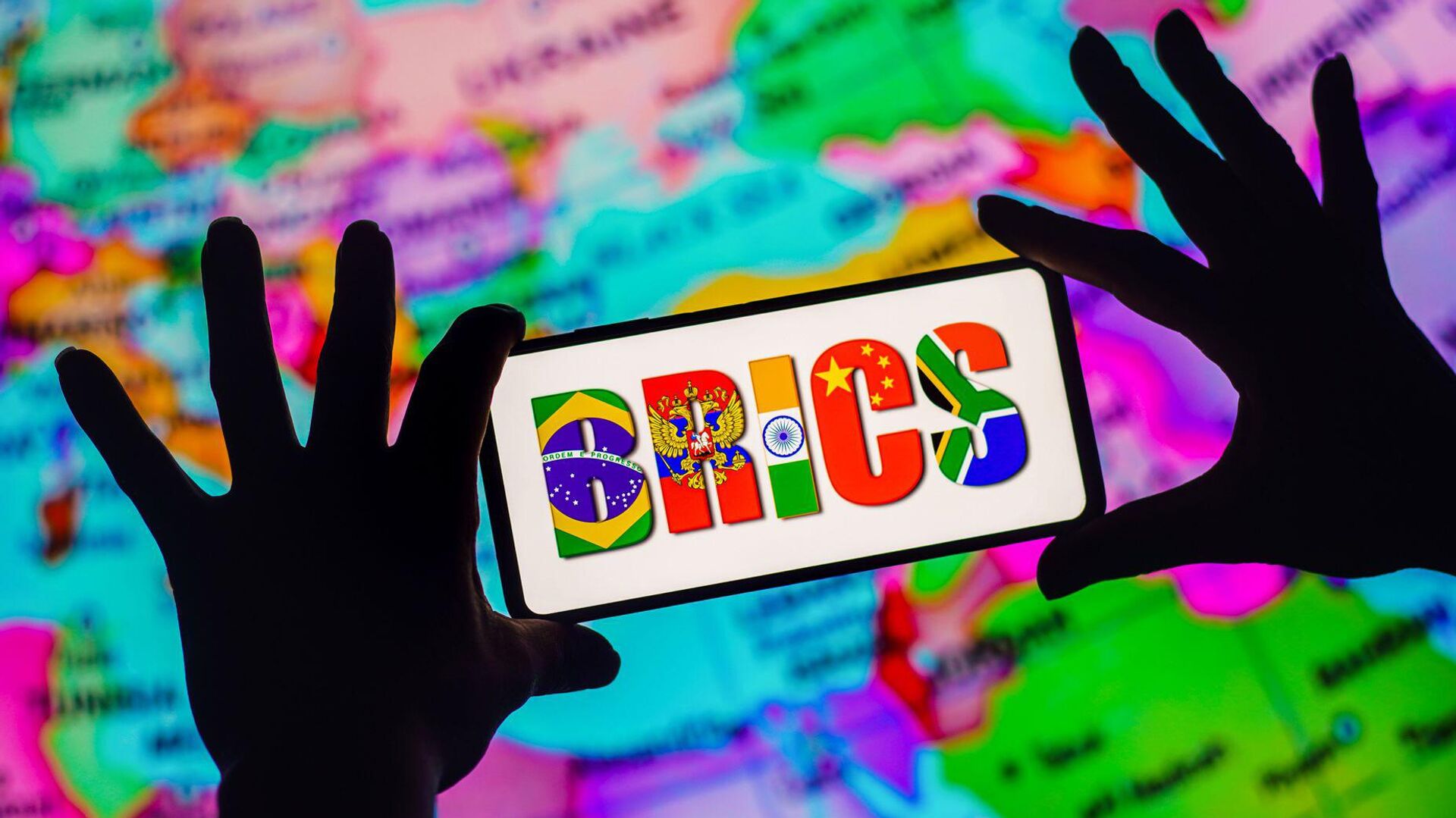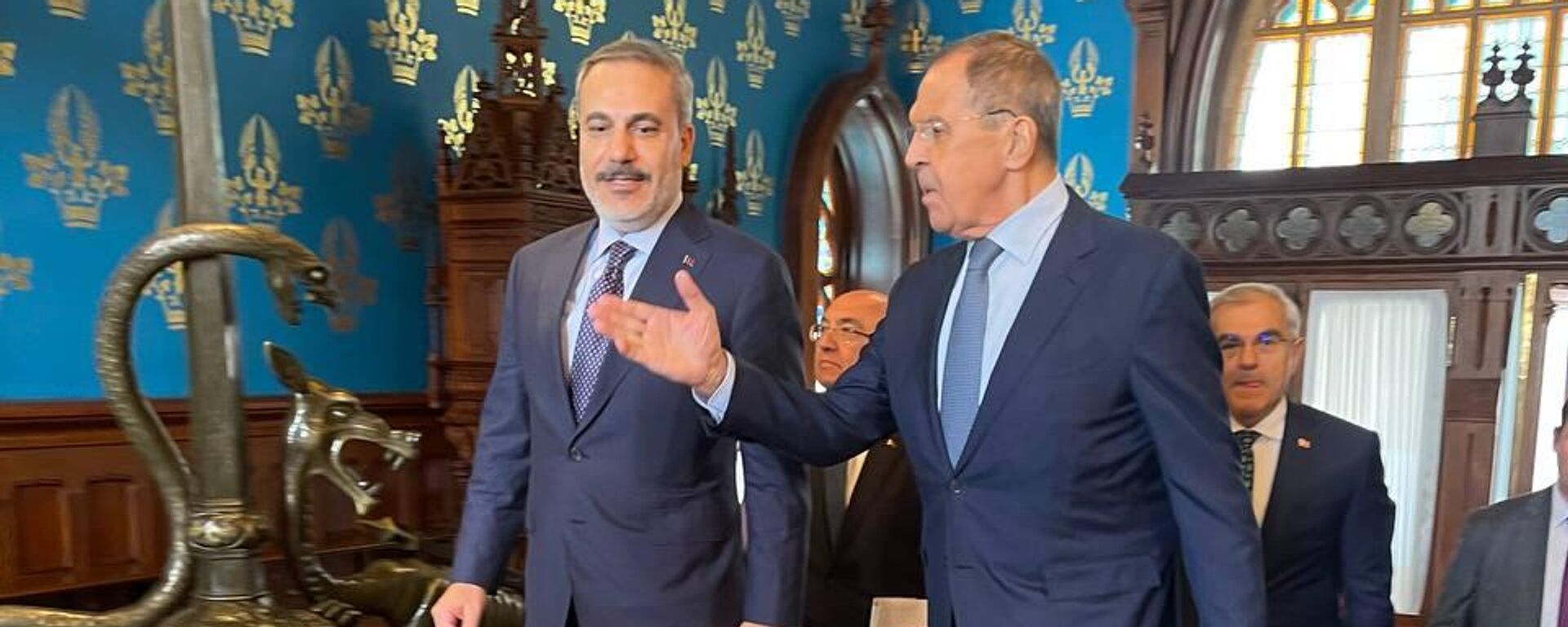https://sputniknews.in/20240606/brics-promotes-cultural-diversity-amid-western-marginalisation-7545561.html
BRICS Promotes Cultural Diversity Amid Western Marginalisation
BRICS Promotes Cultural Diversity Amid Western Marginalisation
Sputnik India
The West is imposing non-traditional and anti-traditional values, asserting not only their imposition but also the belief that they should be universally... 06.06.2024, Sputnik India
2024-06-06T20:14+0530
2024-06-06T20:14+0530
2024-06-06T20:14+0530
russia
india
china
brics
multipolar world
multilateralism
multilateral diplomacy
government of india
ministry of external affairs (mea)
joint indo-russian venture
https://cdn1.img.sputniknews.in/img/07e8/06/06/7548512_0:31:1858:1076_1920x0_80_0_0_313bcdf631978d649a671b9162c1f650.jpg
BRICS is a forum for cultural exchange, while the West remains excluded due to its insistence that only Western cultures and civilisations are important, Russian philosopher, political scientist and sociologist Alexander Dugin said at the St. Petersburg International Economic Forum (SPIEF) on Thursday.The philosopher described the alliance as the "unity of the different", underlying the many contrasts between its member nations: between the Islamic world and India, the Chinese and the Islamic model, India and China, Africa and the Islamic world, and Russia, characterised by its Orthodox tradition, which embodies a different set of values.Yet all these nations share a common foundation of civilisation based on traditional values, whilst the West, according to him, imposes non-traditional values and believes that antitraditional worth should be the only one.He highlighted the bloc as the embodiment of a multipolar world, reflecting a rich tapestry of civilisations and cultures.Dugin stressed that the primary essence of the group nations and their cultural discourse revolves around mutual comprehension, presenting it as the fundamental philosophical dilemma within their cultural exchange.Meanwhile, on 1 January, Russia assumed the role of BRICS chair for the coming year, bringing together new members such as Egypt, Ethiopia, Iran, the United Arab Emirates and Saudi Arabia with existing members such as Brazil, India, China and South Africa.Russia's leadership within the organisation is guided by a commitment to strengthening multilateralism to promote equitable global development and security.During its tenure, the Russian Federation has organised a wide range of over 200 political, economic and public events. Earlier, Russia's sous-sherpa in BRICS, Pavel Knyazev, expected 20-25 countries to attend the BRICS Foreign Ministers' Council in Nizhny Novgorod.
https://sputniknews.in/20240605/turkiyes-interest-in-joining-brics-reflects-its-weakening-confidence-in-west-7530462.html
russia
india
china
iran
south africa
africa
north africa
us
united kingdom (uk)
europe
Sputnik India
feedback.hindi@sputniknews.com
+74956456601
MIA „Rossiya Segodnya“
2024
Swapna Nair
https://cdn1.img.sputniknews.in/img/07e7/09/12/4320104_0:0:681:681_100x100_80_0_0_ca8a7d4d582609272840ffdd1cde7278.jpg
Swapna Nair
https://cdn1.img.sputniknews.in/img/07e7/09/12/4320104_0:0:681:681_100x100_80_0_0_ca8a7d4d582609272840ffdd1cde7278.jpg
News
en_IN
Sputnik India
feedback.hindi@sputniknews.com
+74956456601
MIA „Rossiya Segodnya“
Sputnik India
feedback.hindi@sputniknews.com
+74956456601
MIA „Rossiya Segodnya“
Swapna Nair
https://cdn1.img.sputniknews.in/img/07e7/09/12/4320104_0:0:681:681_100x100_80_0_0_ca8a7d4d582609272840ffdd1cde7278.jpg
brics, cultural exchange, west, western cultures and civilizations, russian philosopher, political scientist, and sociologist, alexander dugin, multipolar model, western civilization, the brics countries, islamic world, india, chinese, islamic models, india, china, africa, islamic world, russia, orthodox tradition, non-traditional values, antitraditional values, brics, multipolar world, civilizations and cultures, institutionalization, multipolar world, cultural discourse, cultural exchange, egypt, ethiopia, iran, the uae, saudi arabia, brazil, india, china, and south africa, russian sous-sherpa, brics, pavel knyazev, brics council of foreign ministers in nizhny novgorod.
brics, cultural exchange, west, western cultures and civilizations, russian philosopher, political scientist, and sociologist, alexander dugin, multipolar model, western civilization, the brics countries, islamic world, india, chinese, islamic models, india, china, africa, islamic world, russia, orthodox tradition, non-traditional values, antitraditional values, brics, multipolar world, civilizations and cultures, institutionalization, multipolar world, cultural discourse, cultural exchange, egypt, ethiopia, iran, the uae, saudi arabia, brazil, india, china, and south africa, russian sous-sherpa, brics, pavel knyazev, brics council of foreign ministers in nizhny novgorod.
BRICS Promotes Cultural Diversity Amid Western Marginalisation
The West is imposing non-traditional and anti-traditional values, asserting not only their imposition but also the belief that they should be universally dominant, a Russian philosopher has said.
BRICS is a forum for cultural exchange, while the West remains excluded due to its insistence that only Western cultures and civilisations are important, Russian philosopher, political scientist and sociologist Alexander Dugin said at the St. Petersburg International Economic Forum (SPIEF) on Thursday.
"BRICS is a dialogue of cultures. Speaking of it, we are already talking about this completely new multipolar model where there is no West... while it is out of the game because it insists that there are no cultures or civilisations, there is only one Western civilisation, and it is the only one. That is why the BRICS countries oppose this hegemony, this racist colonial approach," Dugin emphasized during the meeting of the BRICS Expert Forum.
The philosopher described the alliance as the "unity of the different", underlying the many contrasts between its member nations: between the Islamic world and India, the Chinese and the Islamic model, India and China, Africa and the Islamic world, and Russia, characterised by its Orthodox tradition, which embodies a different set of values.
Yet all these nations share a
common foundation of civilisation based on traditional values, whilst the West, according to him, imposes non-traditional values and believes that antitraditional worth should be the only one.
He highlighted the bloc
as the embodiment of a multipolar world, reflecting a rich tapestry of civilisations and cultures.
"A multipolar world of different actors, civilisations and cultures is emerging before our eyes. BRICS is the fundamental movement towards the institutionalisation of this multipolar world that is taking place before our eyes and is already a multipolar world in its embodiment. But the BRICS group is not just countries, but great civilisations that include a number of countries," Dugin underscored.
Dugin stressed that the primary essence of the group nations and their cultural discourse revolves around mutual comprehension, presenting it as the fundamental philosophical dilemma within their cultural exchange.
"The main message and the cultural basis of BRICS dialogue is to understand each other. This is the main philosophical problem of our cultural dialogue," Dugin highlighted.
Meanwhile, on 1 January, Russia assumed the role of BRICS chair for the coming year, bringing together new members such as Egypt, Ethiopia, Iran, the United Arab Emirates and Saudi Arabia with existing members such as Brazil, India, China and South Africa.
Russia's leadership within the organisation is guided by a commitment to strengthening multilateralism to promote equitable global development and security.
During its tenure, the Russian Federation has organised a wide range of over 200 political, economic and public events. Earlier, Russia's sous-sherpa in BRICS, Pavel Knyazev, expected 20-25 countries to attend the
BRICS Foreign Ministers' Council in Nizhny Novgorod.



